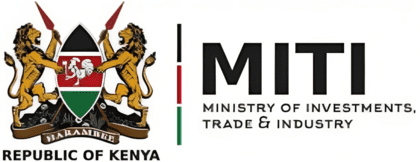Veterinary Laboratories Accreditation
Accreditation to ISO/IEC 17025 and the World Organization for Animal Health (WOAH)
Veterinary laboratory accreditation seeks to promote standards of quality and competence in veterinary laboratories. Accreditation of these laboratories provides international recognition, allowing the laboratory's test results to be accepted globally, compliance with applicable regulations as well as providing customer confidence. Accreditation of veterinary laboratories is essential in assuring public and animal health. It provides reliable laboratory results aiding in disease diagnosis, control, and prevention. Accredited veterinary laboratories are well-prepared to respond to animal health emergencies and zoonotic disease outbreaks. Accredited veterinary laboratories are better equipped to support the One Health approach in understanding the connections between human, animal, and environment health.
Veterinary laboratory accreditation to ISO/IEC 171025 and World Organisation for Animal Health (WOAH) standards ensures:
- Quality and validity of test results
- Legal and Regulatory Compliance
- Facilitates safe international trade of animals and animal products
- Preventing and controlling animal diseases.
ACCREDITATION TO ISO ISO/IEC 171025 AND OIE FOR VETERINARY LABORATORIES
The accreditation covers but not limited to; - Diagnostic testing and disease surveillance
- Testing of animal products for food safety
- Zoonotic Disease Testing
- Epidemiological Studies
- Vaccine Testing and Quality Control
- Post-mortem examinations (necropsies)
- Research and Development
The Veterinary laboratory accreditation to ISO/IEC 171025 and OIE is available to laboratories performing tests in the following various fields:
- Clinical Pathology (Hematology, biochemistry, serology.)
- Animal Pathology (Examination of tissues, cells, and organs to diagnose diseases, including histopathology and cytology)
- Microbiology (bacteriology, virology and mycology)
- Molecular biology and genetics
- Parasitology (helminthology, protozoans and hemiparasites)
- Analytical Chemistry
- Food safety and quality
- Acarology (mites and ticks)
- Zoological testing services

